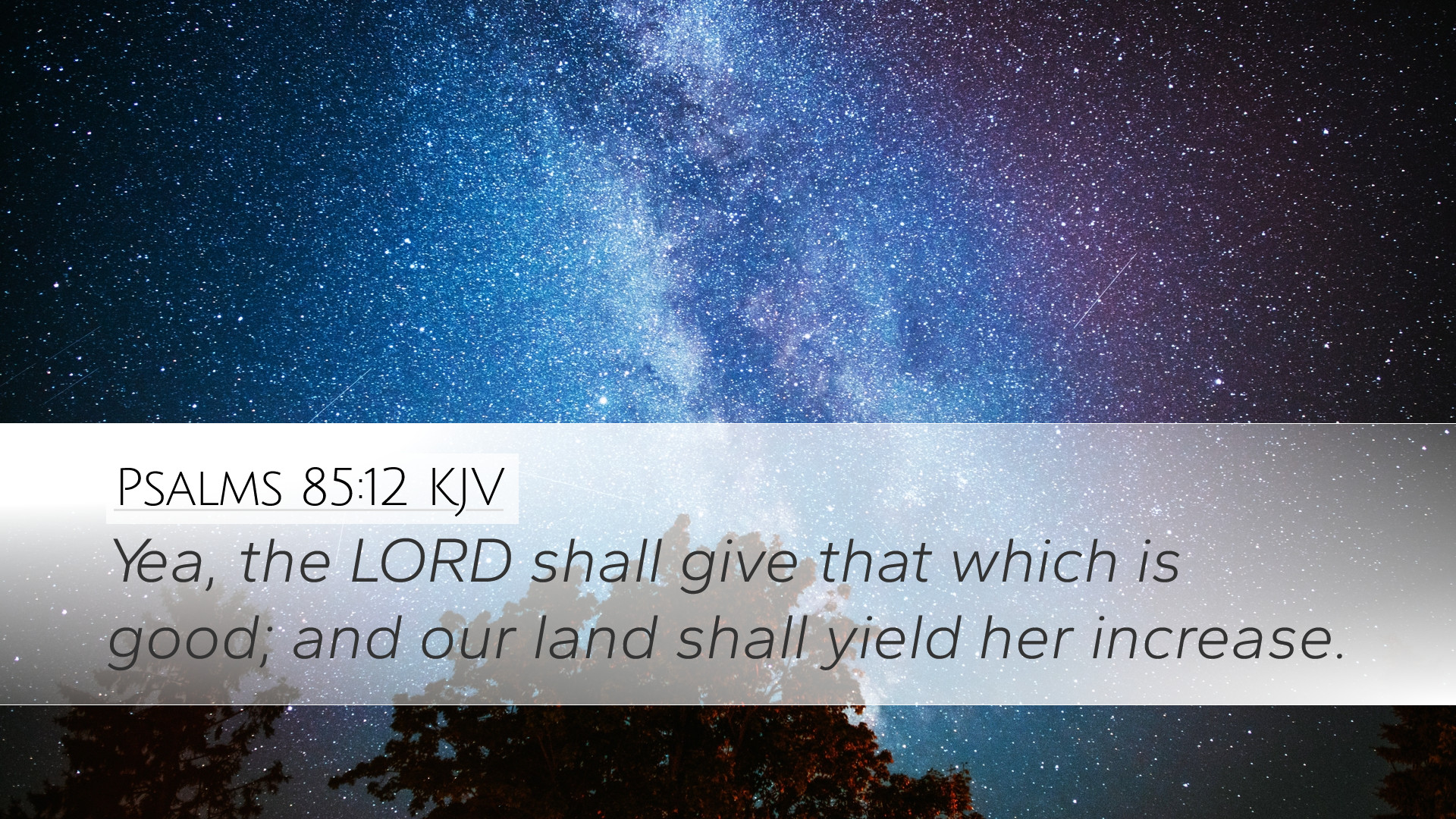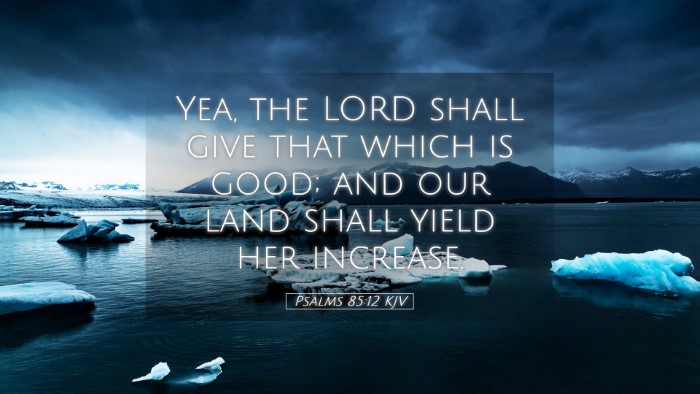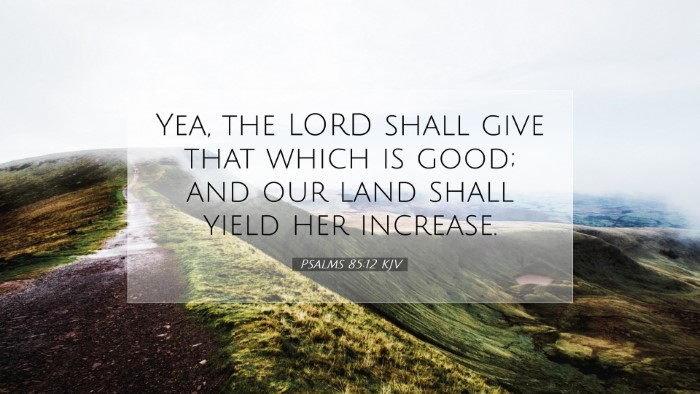Commentary on Psalms 85:12
Verse: "Yea, the Lord shall give that which is good; and our land shall yield her increase."
Introduction
This verse, Psalms 85:12, is a profound declaration of faith and expectation. It encapsulates the believer's confidence in God's goodness and the consequent blessings that flow from it. The psalmist reflects on the fundamental relationship between divine favor and earthly abundance, suggesting that when God grants goodness, the land responds with fruitful increase.
Contextual Background
Psalms 85 is often understood within the context of Israel's restoration after exile. The psalmist recalls the past mercies of God and expresses hope for future redemption. The tension between spiritual revival and material blessing runs through the psalm, indicating a holistic view of divine intervention.
Insights from Commentaries
Matthew Henry's Commentary
Matthew Henry emphasizes the assurance that arises when God bestows His goodness upon His people. He states that the promise of "the Lord shall give" reflects God's sovereign, intentional blessing. Henry points out that both spiritual and material needs are met by the Lord, suggesting that the goodness of God should produce gratitude and a response of faithfulness in His people.
Albert Barnes' Notes on the Bible
Albert Barnes expands on the notion of divine providence, noting that the phrase "the Lord shall give that which is good" signifies an expectation of blessings that stem not just from Israel's agricultural productivity, but also from spiritual renewal and peace. Barnes highlights the relationship between righteousness and prosperity, asserting that a people walking in God's ways will see the land yield its increase. He illustrates how this verse serves as a reminder of God's active role in the lives of His people, providing both physical sustenance and spiritual nourishment.
Adam Clarke's Commentary
Adam Clarke discusses the implications of the land yielding its increase as a manifestation of God's favor. He notes that the goodness here referred to encompasses moral and spiritual dimensions, emphasizing that when righteousness prevails, the earth responds with bounty. Clarke also refers to historical contexts where God’s blessings directly correlated with obedience to His commandments, thus making the condition of the people's hearts vital for experiencing the fullness of God's gifts.
Theological Themes
- Divine Goodness: The verse centers on God's inherent goodness and His willingness to bestow it upon His people. This goodness ultimately serves as the foundation for all blessings that follow.
- Human Response: There is an implicit call to obedience and receptiveness among the faithful. The psalmist implies that acknowledgment of God’s goodness should be met with a commitment to Him, aligning one's life to receive the promised increase.
- Interconnection of Spiritual and Physical Blessings: The idea that spiritual revival leads to physical abundance is a recurrent theme in Scripture. This verse exemplifies how the welfare of the land is intertwined with the moral state of the people.
- Hope for Restoration: Reflected throughout Psalms 85, there's a hopeful outlook towards restoration. The promise that the Lord will give goodness encourages believers to trust in God's redemptive plans through spiritual revival.
Application for Believers
This verse serves as a poignant reminder for contemporary believers and church leaders alike. In a world often filled with uncertainty and trial, the affirmation that God will give what is good offers comfort and hope. Pastors can use this verse to encourage congregations to seek God's goodness through repentance, prayer, and communal faithfulness, thereby inviting His restorative blessings into their lives and communities.
Furthermore, students of the Word are urged to engage with the full narrative of God's promises, understanding the interconnectedness of spiritual condition and tangible outcomes. The rich insights from Henry, Barnes, and Clarke provide a well-rounded understanding that transcends mere academic study and moves into practical, life-altering applications.
Conclusion
Psalms 85:12 encapsulates the essence of God’s generous disposition towards His creation, promising both spiritual and material blessings as a direct result of His goodness. As believers reflect on this verse, they are invited to cultivate a heart that recognizes and responds to God's past faithfulness, thereby positioning themselves to experience the fruitful increase that comes from His hand.


